
Changing approaches to his music with new quartet of Jimmy Lyons on alto sax, Alan Silva on double bass and Andrew Cyrille on drums, pianist Cecil Taylor's incredible 1966 concert in Paris presented four extended compositions, here remastered and reissued with a track from a compilation LP--"With (Exit)"--extending his quartet with Bill Dixon on trumpet and Henry Grimes on double bass.
In Stock
Quantity in Basket: None
Log In to use our Wish List
Shipping Weight: 3.00 units
EU & UK Customers:
Discogs.com can handle your VAT payments
So please order through Discogs
Sample The Album:
Cecil Taylor-piano
Jimmy Lyons-alto saxophone
Bill Dixon-trumpet
Henry Grimes-double bass
Alan Silva-double bass
Andrew Cyrille-drums
Click an artist name above to see in-stock items for that artist.
UPC: 752156113324
Label: ezz-thetics by Hat Hut Records Ltd
Catalog ID: ezz-thetics 1133
Squidco Product Code: 32110
Format: CD
Condition: New
Released: 2022
Country: Switzerland
Packaging: Cardboard Gatefold
Track 1 recorded at Van Gelder Studio, in Englewood Cliffs, New Jersey, on October 6th, 1966.
Tracks 2-5 recorded in Paris, France, on November 30th, 1996.
"With (Exit)" originally included on the compilation album The Amazing Shōichi Yui Volume 2 released on CD in 1999 in Japan on the Blue Note label as catalog code BNCJ-99. Student Studies originally released in 1973 as a double LP in Japan on the BYG Records label with catalog code YX-4003~4.
"On November 30 1966, NASA made public three high resolutions photographs that for the first time showed clearly the depth of the Copernicus crater, one of the most prominent features on our moon, as well as other features. The pictures had been taken about a week before by Lunar Explorer 2. On that same last day of November, a musical explorer offered a new perspective on his musical landscapes. Playing in Paris with his quartet, Cecil Taylor broke with his previous recording and presented a body of music that was precisely concerned with space. Originally released in 1973 as Student Studies but also known as The Great Paris Concert, it differed sharply from the dark, difficult but flawless Conquistador! which proceeded it, represented here by the remarkable "With (Exit)", and then in turn by the tumbling linear language of Unit Structures which came shortly before that.
Critics gasp when a known artist takes new directions, and yet Cecil Taylor, in some ways the most mercurial of all the modernists, is often treated monolithically, as if he developed a language sometime in the 1950s and simply replicated it for the rest of his career. In contrast, Miles Davis - no fan of Taylor's and the feeling was mutual - is famed for his shape-shifting but sounds remarkably of a piece when heard at length and in retrospect.
Produced by Alfred Lion, Conquistador! retains something of the feel of a classic Blue Note hard bop date with the two horns out in front over a heavy, roiling "rhythm section" that behaves almost like the ripieno in a classical concerto grosso. Jimmy Lyons, Bill Dixon and Andrew Cyrille usually take away the significant sideman credits, but it is Alan Silva's sonorous bass, operating like a huge gyroscope at the centre of this music, that unites the two recordings. Dixon was absent from the Paris concert and there is no second bass player. Silva's prominence also puts paid to another loose generalisation about Taylor, true only for a short phase of his career, that he didn't need or welcome a string bass in his groups. Quite the opposite. While some of his most compelling duo work was in the company of drummers, Taylor more often relied on the anchoring sound of a bass at the heart of the group. A pianist who rarely used pedals and didn't rely on sustain, but rather on notes so rapidly juxtaposed that they functioned quite distinctly either from melody, or conventional harmony, or any form of modal organisation. Nobody has yet provided a fully satisfactory account of Taylor's methods. He offered gnomic hints, but always held back from a full explication, perhaps because he hadn't quite worked it all out himself yet.
The other aspect of Student Studies/The Great Paris Concert that was striking was the extent to which Taylor used arranged passages and pre-determined shapes in the music. In later years, he was fascinated by hip-hop and the art of sampling. He shows an instinct for it himself. Ultimately, though, these are group records. Lyons and Cyrille, while not necessarily the only game in town, are instinctively wise even to Taylor's most extreme procedures. They follow him into the most uncharted territory and seem to emerge exactly where needed. There is more space in the music of this period than there had been previously and was later. Listening with evenly suspended attention one doesn't hear a pianist and rhythm - not least because the pianist is generating much of the rhythm - but a musical entity moving forward in an utterly distinct way. The paradoxes of modern physics - light as both particle and wave - operate here. These were groups made up of individuals, some of the most idiosyncratic in the music; and yet the music functions as a complete entity. Taylor's whole career was a wave-front of exploration. The analogy with light is apposite enough. He evolved so fast most of us never quite caught up and relied instead on a few safe generalisations that momentarily applied around 1962 and only occasionally thereafter.
Taylor rarely referenced the space programme, and admitted towards the end of his life that he had found the moon landings "banal". Like Sun Ra, he was a cosmonaut of sound, breaking free of gravity and showing us the musical landscape in ways we had never seen before."-Brian Morton, April, 2022

The Squid's Ear!
Artist Biographies
• Show Bio for Cecil Taylor "Cecil Percival Taylor (March 25, 1929 - April 5, 2018) was an American pianist and poet. Classically trained, Taylor is generally acknowledged as having been one of the pioneers of free jazz. His music is characterized by an extremely energetic, physical approach, producing complex improvised sounds, frequently involving tone clusters and intricate polyrhythms. His piano technique has been likened to percussion, for example described as "eighty-eight tuned drums" (referring to the number of keys on a standard piano). He has also been described as "like Art Tatum with contemporary-classical leanings". Taylor was raised in the Corona, Queens neighborhood of New York City. As an only child to a middle-class family, Taylor's mother encouraged him to play music at an early age. He began playing piano at age six and went on to study at the New York College of Music and New England Conservatory. At the New England Conservatory, Taylor majored in composition and arranging. During his time there, he also became familiar with contemporary European art music. Bartok and Stockhausen notably influenced his music. In 1955, Taylor moved from Boston to New York City. He formed a quartet with soprano saxophonist, Steve Lacy, the bassist Buell Neidlinger, and drummer Dennis Charles. Taylor's first recording, Jazz Advance, featured Lacy and was released in 1956. It is described by Cook and Morton in the Penguin Guide to Jazz: "While there are still many nods to conventional post-bop form in this set, it already points to the freedoms in which the pianist would later immerse himself." Taylor's Quartet featuring Lacy also appeared at the 1957 Newport Jazz Festival which went on to be made into the album At Newport. He collaborated with saxophonist John Coltrane in 1958 (Stereo Drive, currently available as Coltrane Time). 1950s and 1960s Throughout the 1950s and 1960s, Taylor's music grew more complex and moved away from existing jazz styles. Gigs were often hard to come by, and club owners found Taylor's approach to performance (long pieces) unhelpful in conducting business. His 1959 LP Looking Ahead!, showcased his innovation as a creator in comparison to the jazz mainstream. Unlike others at the time, Taylor utilized virtuosic techniques and made swift stylistic shifts from phrase to phrase. These qualities, among others, still remain notable distinctions of Taylor's music today. Landmark recordings, like Unit Structures (1966), also appeared. With 'the Unit', musicians developed often volcanic new forms of conversational interplay. In the early 1960s, an uncredited Albert Ayler worked for a time with Taylor, jamming and appearing on at least one recording, Four, unreleased until 2004. By 1961, Taylor was working regularly with alto saxophonist Jimmy Lyons, one of his most important and consistent collaborators. Taylor, Lyons and drummer Sunny Murray (and later Andrew Cyrille) formed the core personnel of The Unit, Taylor's primary group effort until Lyons's premature death in 1986. Lyons's playing, strongly influenced by jazz icon Charlie Parker, retained a strong blues sensibility and helped keep Taylor's increasingly avant garde music tethered to the jazz tradition. Solo concerts Taylor began to perform solo concerts in the second half of the sixties. The first known recorded solo performance (by Dutch radio) was 'Carmen With Rings' (59 min.) in De Doelen concert hall in Rotterdam on July 1, 1967. Two days before Taylor had played the same composition in the Amsterdam Concertgebouw. Many of the later concerts were released on album and include Indent (1973), side one of Spring of Two Blue-J's (1973), Silent Tongues (1974), Garden (1982), For Olim (1987), Erzulie Maketh Scent (1989) and The Tree of Life (1998). He began to garner critical, if not popular, acclaim, playing for Jimmy Carter on the White House Lawn, lecturing as an in-residence artist at universities, and eventually being awarded a Guggenheim Fellowship in 1973 and then a MacArthur Fellowship in 1991. 1990s and the Feel Trio Following Lyons's death in 1986 Taylor formed the Feel Trio in the early 1990s with William Parker (bass) and Tony Oxley (drums); the group can be heard on Celebrated Blazons, Looking (Berlin Version) The Feel Trio and the 10-CD set 2 T's for a Lovely T. Compared to his prior small groups with Jimmy Lyons, the Feel Trio had a more abstract approach, tethered less to jazz tradition and more aligned with the ethos of European free improvisation. He also performed with larger ensembles and big-band projects. His extended residence in Berlin in 1988 was extensively documented by the German label FMP, resulting in a massive boxed set of performances in duet and trio with a who's who of European free improvisors, including Oxley, Derek Bailey, Evan Parker, Han Bennink, Tristan Honsinger, Louis Moholo, Paul Lovens, and others. Most of his latter day recordings have been put out on European labels, with the exception of Momentum Space (a meeting with Dewey Redman and Elvin Jones) on Verve/Gitanes. The classical label Bridge released his 1998 Library of Congress performance Algonquin, a duet with violinist Mat Maneri. Taylor continued to perform for capacity audiences around the world with live concerts, usually played on his favored instrument, a Bösendorfer piano that features nine extra lower-register keys. A documentary entitled All the Notes, was released on DVD in 2006 by director Chris Felver. Taylor was also featured in an earlier documentary film Imagine the Sound (1981), in which he discusses and performs his music, poetry and dance. 2000s At Moers Festival 2008 Taylor recorded sparingly in the 2000s, but continued to perform with his own ensembles (the Cecil Taylor Ensemble and the Cecil Taylor Big Band) as well as with other musicians such as Joe Locke, Max Roach, and the poet Amiri Baraka. In 2004, the Cecil Taylor Big Band at the Iridium 2005 was nominated a best performance of 2004 by All About Jazz, and the same in 2009 for the Cecil Taylor Trio at the Highline Ballroom in 2009. The trio consisted of Taylor, Albey Balgochian, and Jackson Krall. At time of Taylor's death in 2018A an autobiography, further concerts, and other projects were in the works. In 2010, Triple Point Records released a deluxe limited edition double LP titled Ailanthus/Altissima: Bilateral Dimensions of Two Root Songs, a set of duos with long-time collaborator Tony Oxley that was recorded live at the Village Vanguard in New York City. In 2013, he was awarded the Kyoto Prize for Music. In 2014, his career and 85th birthday were honored at the Painted Bride Art Center in Philadelphia with the tribute concert event "Celebrating Cecil". In 2016 he received a retrospective at the Whitney Museum of American Art entitled Open Plan: Cecil Taylor. Taylor, along with dancer Min Tanaka was the subject of Amiel Courtin-Wilson's 2016 documentary film "The Silent Eye". Ballet and dance In addition to piano, Taylor was always interested in ballet and dance. His mother, who died while he was still young, was a dancer and also played the piano and violin. Taylor once said: "I try to imitate on the piano the leaps in space a dancer makes." He collaborated with dancer Dianne McIntyre in the late 70s and early 80s. In 1979 he also composed and played the music for a twelve-minute ballet "Tetra Stomp: Eatin' Rain in Space", featuring Mikhail Baryshnikov and Heather Watts. Poetry Taylor was a poet, citing Robert Duncan, Charles Olson and Amiri Baraka as major influences. He often integrated his poems into his musical performances, and they frequently appear in the liner notes of his albums. The CD Chinampas, released by Leo Records in 1987, is a recording of Taylor reciting several of his poems, accompanying himself on percussion. Influence and musical style According to Steven Block, free jazz originated with the performances of Cecil Taylor at the Five Spot Cafe in 1957 and Ornette Coleman in 1959. In 1964, Taylor co-founded the Jazz Composers Guild to enhance the working possibilities of avant-garde jazz musicians. Taylor's style and methods have been described as 'constructivist'. Despite Scott Yanow's warning regarding Taylor's "forbidding music": Suffice it to say that Cecil Taylor's music is not for everyone he goes on to praise Taylor's "remarkable technique and endurance," and his "advanced", "radical", "original", and uncompromising "musical vision." This vision is one of Taylor's greatest influences upon others: Playing with Taylor I began to be liberated from thinking about chords. I'd been imitating John Coltrane unsuccessfully and because of that I was really chord conscious. - Archie Shepp, quoted in LeRoi Jones, album liner notes for Four for Trane (Impulse A-71, 1964). Personal life In 1982, jazz critic Stanley Crouch outed Taylor as being gay, prompting an angry response. However, Taylor never denied it. In 1991, Taylor told a New York Times reporter "[s]omeone once asked me if I was gay. I said, 'Do you think a three-letter word defines the complexity of my humanity?' I avoid the trap of easy definition." Taylor moved to Fort Greene, Brooklyn in 1983. Death Taylor died on April 5. 2018 at tbe age of 89." ^ Hide Bio for Cecil Taylor • Show Bio for Jimmy Lyons "Jimmy Lyons (December 1, 1931 - May 19, 1986) was an alto saxophone player. He is best known for his long tenure in the Cecil Taylor Unit. Lyons was the only constant member of the band from the mid-1960s until his death in 1986. Taylor never worked with another musician as frequently as he did with Lyons. Lyons' playing, influenced by Charlie Parker, kept Taylor's avant-garde music tethered to the jazz tradition. Lyons was born in Jersey City, New Jersey and raised there until the age of 9, when his mother moved the family to Harlem and then the Bronx. He obtained his first saxophone in the mid-1940s and took lessons from Buster Bailey. After high school, Lyons was drafted into the United States Army and spent 21 months on infantry duty in Korea. He then spent a year playing in army bands. Once discharged he attended New York University. By the end of the 1950s, Lyons was supporting his interest in music by working for the United States Postal Service. In 1961, Lyons followed Archie Shepp into the saxophone role in the Cecil Taylor Unit. His post-Parker sound and strong melodic sense became a defining part of the sound of that group, from the 1962 Cafe Montmartre sessions onwards. During the 1970s Lyons also ran his own ensemble, with bassoonist Karen Borca and percussionist Paul Murphy. They often performed in the loft jazz movement around Studio Rivbea. Lyons' group and Cecil Taylor Unit continued a parallel development throughour the 1970s and 1980s, often involving the same musicians, including trumpeter Raphe Malik, bassist William Parker and percussionist Murphy. In 1976, Lyons performed in a production of Adrienne Kennedy's A Rat's Mass directed by Cecil Taylor at La MaMa Experimental Theatre Club in the East Village of Manhattan. Musicians Rashid Bakr, Andy Bey, Karen Borca, David S. Ware, and Raphe Malik also performed in the production. Taylor's production combined the original script with a chorus of orchestrated voices used as instruments. Lyons died from lung cancer in 1986 at the age of 54. He didn't publish many recordings with his own ensemble, though Ayler Records did release a 5-CD box set of recordings from 1972 to 1985." ^ Hide Bio for Jimmy Lyons • Show Bio for Bill Dixon "Bill Dixon (October 5, 1925 – June 16, 2010) was an American musician, composer, visual artist, and educator. Dixon was one of the seminal figures in the free jazz movement. He played the trumpet, flugelhorn, and piano, often using electronic delay and reverberation. Dixon hailed from Nantucket, Massachusetts. His family later moved to Harlem, New York City when he was about 7. His studies in music came relatively late in life, at the Hartnette Conservatory of Music (1946–1951). He studied painting at Boston University and the WPA Arts School and the Art Students League. During the early 1950s he had a job at the United Nations, and founded the UN Jazz Society. In the 1960s Dixon established himself as a major force in the jazz avant-garde movement. In 1964, Dixon organized and produced the 'October Revolution in Jazz', four days of music and discussions at the Cellar Café in Manhattan. The participants included notable musicians Cecil Taylor and Sun Ra among others. It was the first free-jazz festival of its kind. Dixon later founded the Jazz Composers Guild, a cooperative organization that sought to create bargaining power with club owners and effect greater media visibility. He was relatively little recorded during this period, though he co-led some releases with Archie Shepp and appeared on Cecil Taylor's Blue Note record Conquistador! in 1966. In 1967, he composed and conducted a score for the United States Information Agency film The Wealth of a Nation, produced and directed by William Greaves. He was Professor of Music at Bennington College, Vermont, from 1968 to 1995, where he founded the college's Black Music Division. From 1970 to 1976 he played "in total isolation from the market places of this music", as he puts it. Solo trumpet recordings from this period were later released by Cadence Jazz Records, and later collected on the self-released multi-CD set Odyssey along with other material. He was one of four featured musicians in the Canadian documentary Imagine the Sound (along with Cecil Taylor, Archie Shepp, and Paul Bley), 1981. In recent years he recorded with Cecil Taylor, Tony Oxley, William Parker, Rob Mazurek, and many others. Dixon's playing was noted for his extensive use of the pedal register, playing below the trumpet's commonly ascribed range, and well into the trombone and tuba registers. He made extensive use of half-valve techniques and the use of breath with or without engaging the traditional trumpet embouchure. He largely eschewed the use of mutes, the exception being his use of the harmon mute, with or without stem. On June 16, 2010, Bill Dixon died in his sleep at his home after suffering from an undisclosed illness." ^ Hide Bio for Bill Dixon • Show Bio for Henry Grimes "As of the beginning of 2016, master jazz musician Henry Grimes (acoustic bass, violin, poetry, illustrations) had played more than 615 concerts in 31 countries (including many festivals) since 2003, when he made his astonishing return to the music world after 35 years away. He was born and raised in Philadelphia and attended the Mastbaum School (1949-52) and Juilliard (1952-54). As a youngster in the '50's and early '60's, he came up in the music playing and touring with Willis "Gator Tail" Jackson, Arnett Cobb, "Bullmoose" Jackson, "Little" Willie John, King Curtis, and a number of other great R&B / soul musicians; but drawn to jazz, he went on to play, tour, and record with many great jazz musicians of that era, including Albert Ayler, Don Cherry, Benny Goodman, Coleman Hawkins, Roy Haynes, Lee Konitz, Steve Lacy, Charles Mingus, Thelonious Monk, Gerry Mulligan, Sunny Murray, Sonny Rollins, Pharoah Sanders, Archie Shepp, Cecil Taylor, and McCoy Tyner. Sadly, a trip to the West Coast to work with Al Jarreau and Jon Hendricks went awry, leaving Henry in Los Angeles at the end of the '60's with a broken bass he couldn't pay to repair, so he sold it for a small sum and faded away from the music world. Many years passed with nothing heard from him, as he lived in his tiny rented room in an S.R.O. hotel in downtown Los Angeles, working as a manual laborer, custodian, and maintenance man, and writing many volumes of handwritten poetry. He was discovered there by a Georgia social worker in 2002 and was given a bass by William Parker, and after only a few weeks of ferocious woodshedding, Henry emerged from his room to begin playing concerts around Los Angeles and shortly afterwards made a triumphant return to New York City in May, 2003 to play in the Vision Festival. Since then, often working as a leader, he has played, toured, and / or recorded with many of this era's musical and literary heroes, such as Chris Abani, Rashied Ali, Geri Allen, Marshall Allen, Barry Altschul, Fred Anderson, Tatsu Aoki, Newman Taylor Baker, Billy Bang, Harrison Bankhead, Amiri Baraka, Joey Baron, Hamiet Bluiett, Dave Burrell, Roy Campbell Jr., Alex & Nels Cline, Cooper-Moore, Marilyn Crispell, Connie Crothers, Ted Curson, Andrew Cyrille, Thulani Davis, Toi Derricotte, Bill Dixon, Pierre Dorge, Hamid Drake, Paul Dunmall, Cornelius Eady, Kahil El'Zabar, Douglas Ewart, Bobby Few, Charles Gayle, Melvin Gibbs, Yoriyuki Harada, Craig Harris, Graham Haynes, Karma Mayet Johnson, Edward "Kidd" Jordan, Andrew Lamb, Nathaniel Mackey, Maria Mitchell, Nicole Mitchell, Roscoe Mitchell, Elaine Mitchener, Louis Moholo-Moholo, Meredith Monk [recording only], Jemeel Moondoc, Jason Moran, David Murray, Sunny Murray, Amina Claudine Myers, Zim Ngqawana, Kresten Osgood, William Parker, HPrizm (High Priest, Kyle Austin), Odean Pope, Avreeayl Ra, Tomeka Reid, Vernon Reid, Marc Ribot, Matana Roberts, Orphy Robinson, Brandon Ross, Lee Mixashawn Rozie, Mark Sanders, Rasul Siddik, Wadada Leo Smith, Warren Smith, Tyshawn Sorey, Sekou Sundiata, Tani Tabbal, Jamaaladeen Tacuma, Aldo Tambellini, Greg Tate, Cecil Taylor (reunion), Chad Taylor, John Tchicai, Pat Thomas, Henry Threadgill, Edwin Torres, Dwight Trible, Jeff "Tain" Watts, Ed Wilkerson Jr., James Zollar, John Zorn, and too many others to list here. In the past few years, Henry has also held a number of residencies and offered workshops and master classes on major campuses, including: Berklee College of Music (Boston); Buffalo Academy for Visual & Performing Arts (upstate New York); CalArts, hosted by Wadada Leo Smith (Valencia, California); the Carlucci School, with Andrew Lamb and Newman Taylor Baker (Portugal); Hamilton College of Performing Arts, with Rashied Ali (upstate New York); Humber College (Toronto); JazzInstitut Darmstadt (Germany); Mills College, hosted by Roscoe Mitchell (Oakland, California); New England Conservatory (Boston, Massachusetts); Scuole Bruscio and Scuole Poschiavo (Switzerland); the University of Gloucestershire at Cheltenham (U.K.); University of Illinois at Urbana-Champaign, Illinois; University of Michigan at Ann Arbor; and several more. Henry can be heard on about a dozen new recordings, made his professional debut on a second instrument (the violin) at the age of 70 alongside Cecil Taylor at Lincoln Center, has seen the publication of the first volume of his poetry, "Signs Along the Road," by a publisher in Cologne, and creates illustrations to accompany his new recordings and publications. He has received many honors in recent years, including four Meet the Composer grants. Mr. Grimes can be heard on 90+ recordings on various labels, including Atlantic, Ayler Records, Blue Note, Columbia, ESP-Disk, ILK Music, Impulse!, JazzNewYork Productions, Pi Recordings, Porter Records, Prestige, Riverside, and Verve. He is the subject of a new biography published in London, "Music to Silence to Music: A Biography of Henry Grimes" by Dr. Barbara Frenz, with a beautiful foreword by Sonny Rollins (http://tinyurl.com/h9f8mo4). And on July 7th, 2016, Henry received a Lifetime Achievement Award and played a full evening of concerts with groups of his own choosing in the Arts for Art / Vision Festival at Judson Memorial Church in New York City , where he had also played and recorded with Albert Ayler's group back in the '60s. Henry Grimes is now a permanent resident of New York City and welcomes students here." ^ Hide Bio for Henry Grimes • Show Bio for Alan Silva "Alan Silva (born Alan Lee da Silva; January 22, 1939 in Bermuda) is an American free jazz double bassist and keyboard player. Silva was born a British subject to an Azorean/Portuguese mother, Irene da Silva, and a black Bermudian father known only as "Ruby". He emigrated to the United States at the age of five with his mother, eventually acquiring U.S. citizenship by the age of 18 or 19. He adopted the stage name of Alan Silva in his twenties. Silva was quoted in a Bermudan newspaper in 1988 as saying that although he left the island at a young age, he always considered himself Bermudian. He was raised in the Harlem neighborhood of New York City, where he first began studying the trumpet, and moved on to study the upright bass. Silva is known as one of the most inventive bass players in jazz and has performed with many in the world of avant-garde jazz, including Cecil Taylor, Sun Ra, Albert Ayler, Sunny Murray, and Archie Shepp. Silva performed in 1964's October Revolution in Jazz as a pioneer in the free jazz movement, and for Ayler's Live in Greenwich Village album. He has lived mainly in Paris since the early 1970s, where he formed the Celestrial Communication Orchestra, a group dedicated to the performance of free jazz with various instrumental combinations. In the 1990s he picked up the electronic keyboard, declaring that his bass playing no longer surprised him. He has also used the electric violin and electric sarangi on his recordings. In the 1980s Silva opened a music school I.A.C.P. (Institute for Art, Culture and Perception) in Central Paris, introducing the concept of a Jazz Conservatory patterned after France's traditional conservatories devoted to European classical music epochs. Since around 2000 he has performed more frequently as a bassist and bandleader, notably at New York City's annual Vision Festivals." ^ Hide Bio for Alan Silva • Show Bio for Andrew Cyrille "Andrew Charles Cyrille (born November 10, 1939) is an American avant-garde jazz drummer. Throughout his career, he has performed both as a leader and a sideman in the bands of Walt Dickerson and Cecil Taylor, among others. Cyrille was born on November 10, 1939, in Brooklyn, New York into a Haitian family. He began studying science at St. John's University, but was already playing jazz in the evenings and switched his studies to the Juilliard School. His first drum teachers were fellow Brooklyn-based drummers Willie Jones and Lenny McBrowne; through them, Cyrille met Max Roach. Nonetheless, Cyrille became a disciple of Philly Joe Jones, who in some performances such as Time Waits used Cyrille's drum kit. His first professional engagement was as an accompanist of singer Nellie Lutcher, and he had an early recording session with Coleman Hawkins. Trumpeter Ted Curson introduced him to pianist Cecil Taylor when Cyrille was 18. He joined the Cecil Taylor unit in 1964, and stayed for about 10 years, eventually performing drum duos with Milford Graves. In addition to recording as a bandleader, he has recorded and/or performed with musicians such as David Murray, Irène Schweizer, Marilyn Crispell, Carla Bley, Butch Morris and Reggie Workman among others. Cyrille is currently a member of the group, Trio 3, with Oliver Lake and Reggie Workman." ^ Hide Bio for Andrew Cyrille
6/25/2025
Have a better biography or biography source? Please Contact Us so that we can update this biography.
6/25/2025
Have a better biography or biography source? Please Contact Us so that we can update this biography.
6/25/2025
Have a better biography or biography source? Please Contact Us so that we can update this biography.
6/25/2025
Have a better biography or biography source? Please Contact Us so that we can update this biography.
6/25/2025
Have a better biography or biography source? Please Contact Us so that we can update this biography.
6/25/2025
Have a better biography or biography source? Please Contact Us so that we can update this biography.
Track Listing:
1. With (Exit) 19:20
2. Student Studies 1 16:01
3. Student Studies 2 11:01
4. Ampiltude 19:45
5. Niggle Feuigle 12:07
Hat Art
Improvised Music
Jazz
Free Improvisation
NY Downtown & Metropolitan Jazz/Improv
Quartet Recordings
Sextet Recordings
Jazz Reissues
Staff Picks & Recommended Items
New in Improvised Music
Jazz & Improvisation Based on Compositions
Search for other titles on the label:
ezz-thetics by Hat Hut Records Ltd.

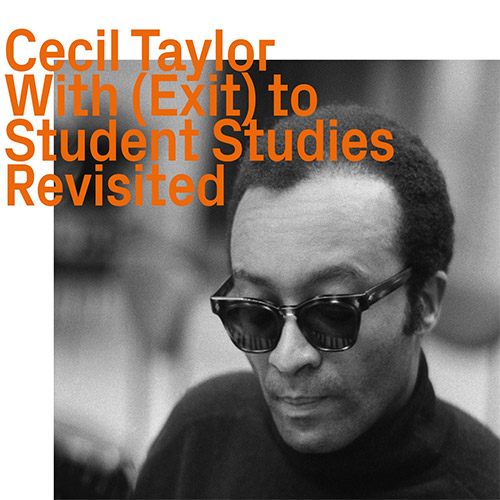

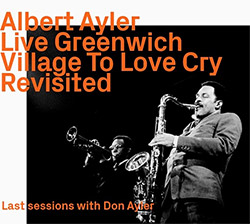


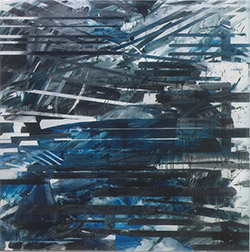



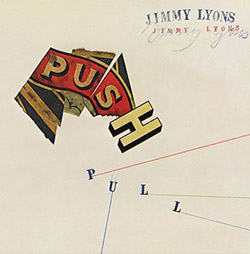
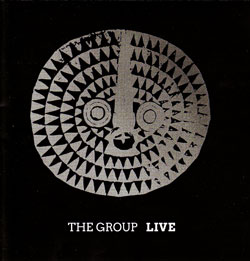

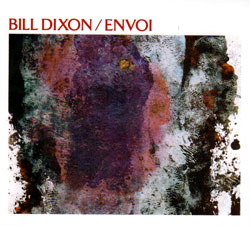



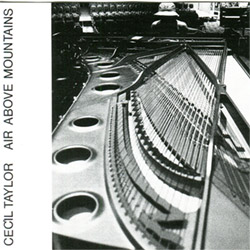

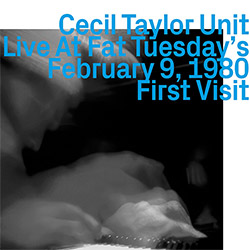

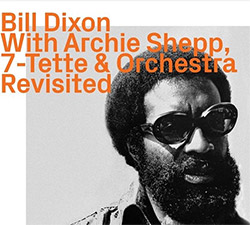
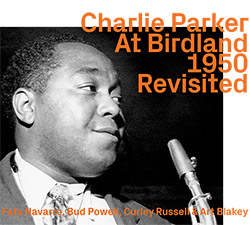
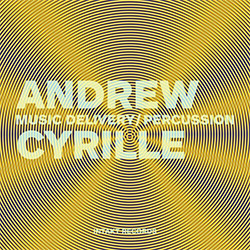
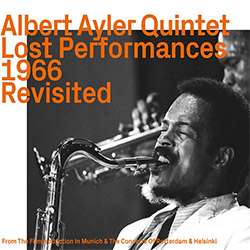
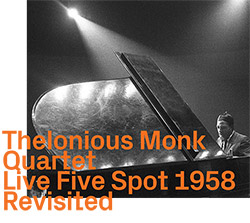
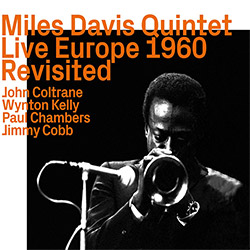




![Eternities: Rides Again [CASSETTE]](https://www.teuthida.com/productImages/misc4/36247.jpg)

![Lopez, Francisco: Untitled (2021-2022) [2 CDs]](https://www.teuthida.com/productImages/misc4/36438.jpg)




![Eventless Plot | Haarvol: The Subliminal Paths [CASSETTE + DOWNLOAD]](https://www.teuthida.com/productImages/misc4/36232.jpg)












![Eventless Plot | Francesco Covarino: Methexis [CASSETTE + DOWNLOAD]](https://www.teuthida.com/productImages/misc4/36231.jpg)

![Brown, Dan / Dan Reynolds: Live At The Grange Hall [unauthorized][CASSETTE]](https://www.teuthida.com/productImages/misc4/36245.jpg)





![Das B (Mazen Kerbaj / Mike Majkowski / Magda Mayas / Tony Buck): Love [VINYL]](https://www.teuthida.com/productImages/misc4/36329.jpg)


![Hemphill Stringtet, The: Plays the Music of Julius Hemphill [VINYL]](https://www.teuthida.com/productImages/misc4/36409.jpg)



![Halvorson, Mary Septet: Illusionary Sea [2 LPS]](https://www.teuthida.com/productImages/misc4/17952.jpg)



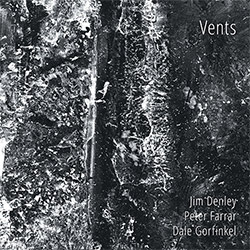
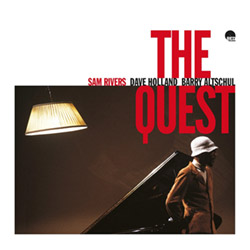
![Re-Ghoster Extended: The Zebra Paradox [VINYL]](https://www.teuthida.com/productImages/misc4/36204.jpg)
![FDF Trio: Possibility And Prejudices From Within A Cup [VINYL]](https://www.teuthida.com/productImages/misc4/36205.jpg)
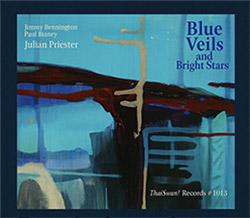

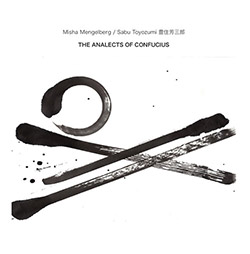

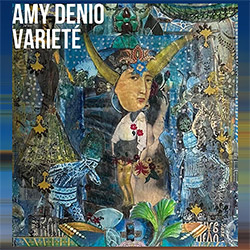



![Money : Money 2 [2 CDs]](https://www.teuthida.com/productImages/misc4/35894.jpg)




![Klinga, Erik: Elusive Shimmer [VINYL]](https://www.teuthida.com/productImages/misc4/36258.jpg)
![CHANGES TO blind (Phil Zampino): Volume 9 - I Wave on a Fine Vile Mist [CD + DOWNLOAD]](https://www.teuthida.com/productImages/misc4/36061.jpg)

![Wallmart / Rubbish: Asset Protection [split CD]](https://www.teuthida.com/productImages/misc4/35900.jpg)


![+Dog+: The Family Music Book Vol. 5 [2 CDs]](https://www.teuthida.com/productImages/misc4/35897.jpg)
![Kuvveti, Deli : Kuslar Soyledi [CASSETTE w/ DOWNLOAD]](https://www.teuthida.com/productImages/misc4/36107.jpg)

![Nakayama, Tetsuya: Edo Wan [CASSETTE w/ DOWNLOAD]](https://www.teuthida.com/productImages/misc4/36105.jpg)




![Yiyuan, Liang / Li Daiguo: Sonic Talismans [VINYL]](https://www.teuthida.com/productImages/misc4/35957.jpg)






![Palestine, Charlemagne / Seppe Gebruers: Beyondddddd The Notessssss [VINYL]](https://www.teuthida.com/productImages/misc4/36206.jpg)
![Palestine, Charlemagne / Seppe Gebruers: Beyondddddd The Notessssss [NEON GREEN VINYL]](https://www.teuthida.com/productImages/misc4/36207.jpg)

![Laubrock, Ingrid: Purposing The Air [2 CDs]](https://www.teuthida.com/productImages/misc4/35639.jpg)

![Yoko, Ono / The Great Learning Orchestra: Selected Recordings From Grapefruit [2 CDs]](https://www.teuthida.com/productImages/misc4/35841.jpg)









![Zorn, John / JACK Quartet: The Complete String Quartets [2 CDs]](https://www.teuthida.com/productImages/misc4/35609.jpg)

![Lonsdale, Eden: Dawnings [2 CDs]](https://www.teuthida.com/productImages/misc4/35480.jpg)



![Sorry For Laughing (G. Whitlow / M. Bates / Dave-Id / E. Ka-Spel): Rain Flowers [2 CDS]](https://www.teuthida.com/productImages/misc4/35985.jpg)

![Rolando, Tommaso / Andy Moor : Biscotti [CASSETTE w/ DOWNLOADS]](https://www.teuthida.com/productImages/misc4/36106.jpg)


![Electric Bird Noise / Derek Roddy: 8-10-22 [CD EP]](https://www.teuthida.com/productImages/misc4/35970.jpg)








![Elephant9 : Mythical River [VINYL]](https://www.teuthida.com/productImages/misc4/34624.jpg)



![Elephant9 with Terje Rypdal: Catching Fire [VINYL 2 LPs]](https://www.teuthida.com/productImages/misc4/35355.jpg)
![Deerlady (Obomsawin, Mali / Magdalena Abrego): Greatest Hits [VINYL]](https://www.teuthida.com/productImages/misc4/34876.jpg)







![Surplus 1980: Illusion of Consistency [CD]](https://www.teuthida.com/productImages/misc4/35069.jpg)
![Staiano, Moe: Away Towards the Light [VINYL + DOWNLOAD]](https://www.teuthida.com/productImages/misc4/35037.jpg)
![Coley, Byron: Dating Tips for Touring Bands [VINYL]](https://www.teuthida.com/productImages/misc4/17906.jpg)

![Lost Kisses: My Life is Sad & Funny [DVD]](https://www.teuthida.com/productImages/misc4/lostKissesDVD.jpg)